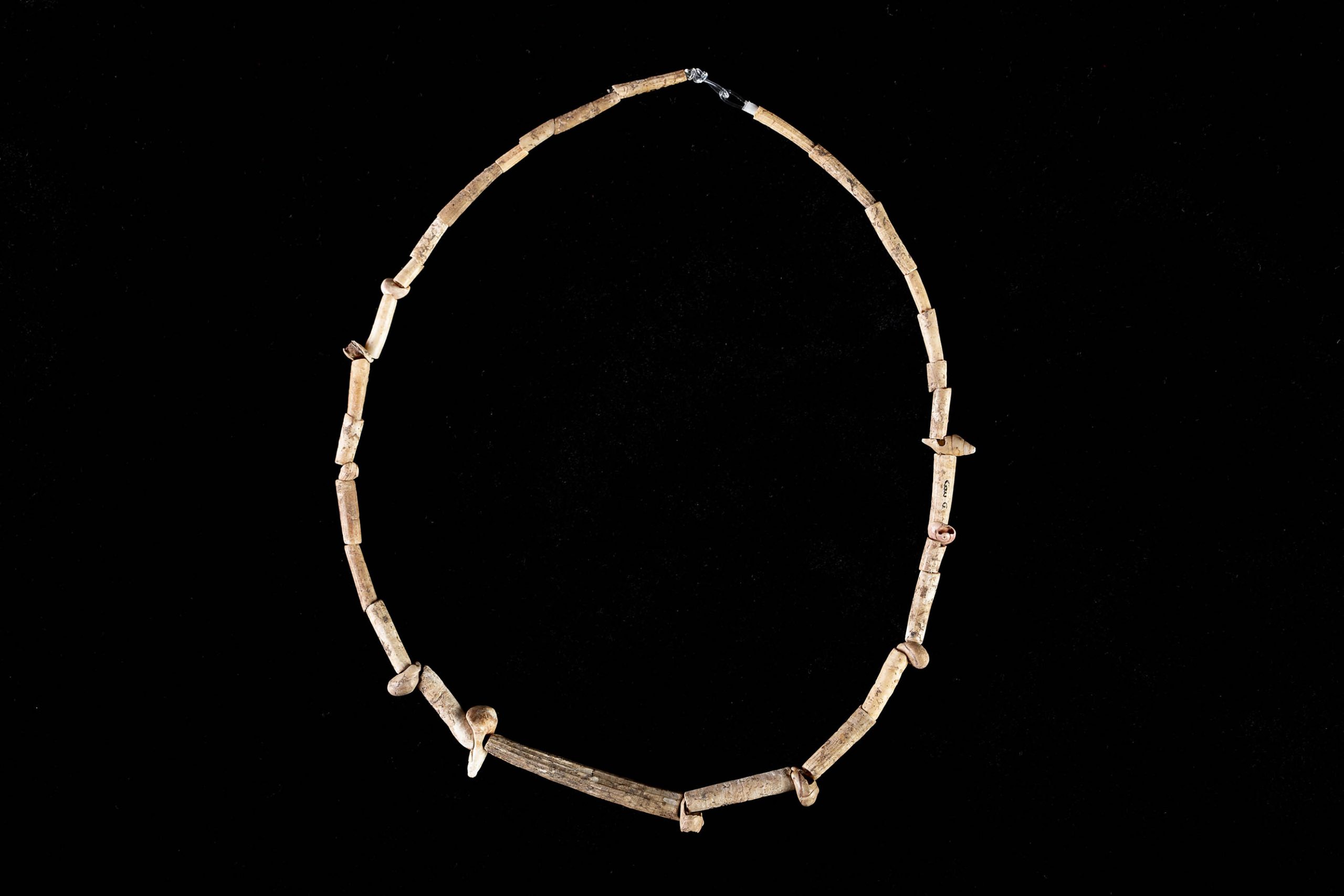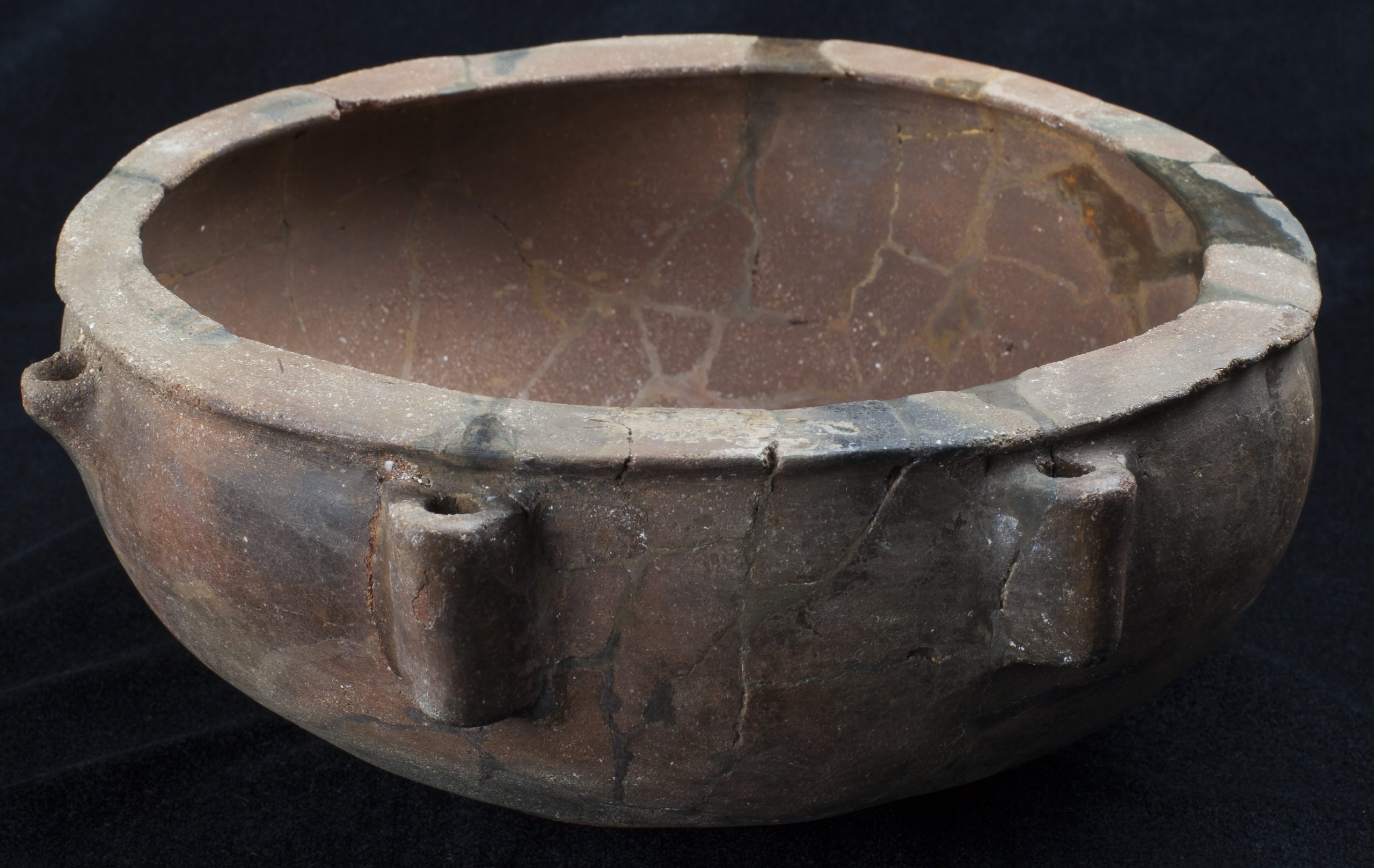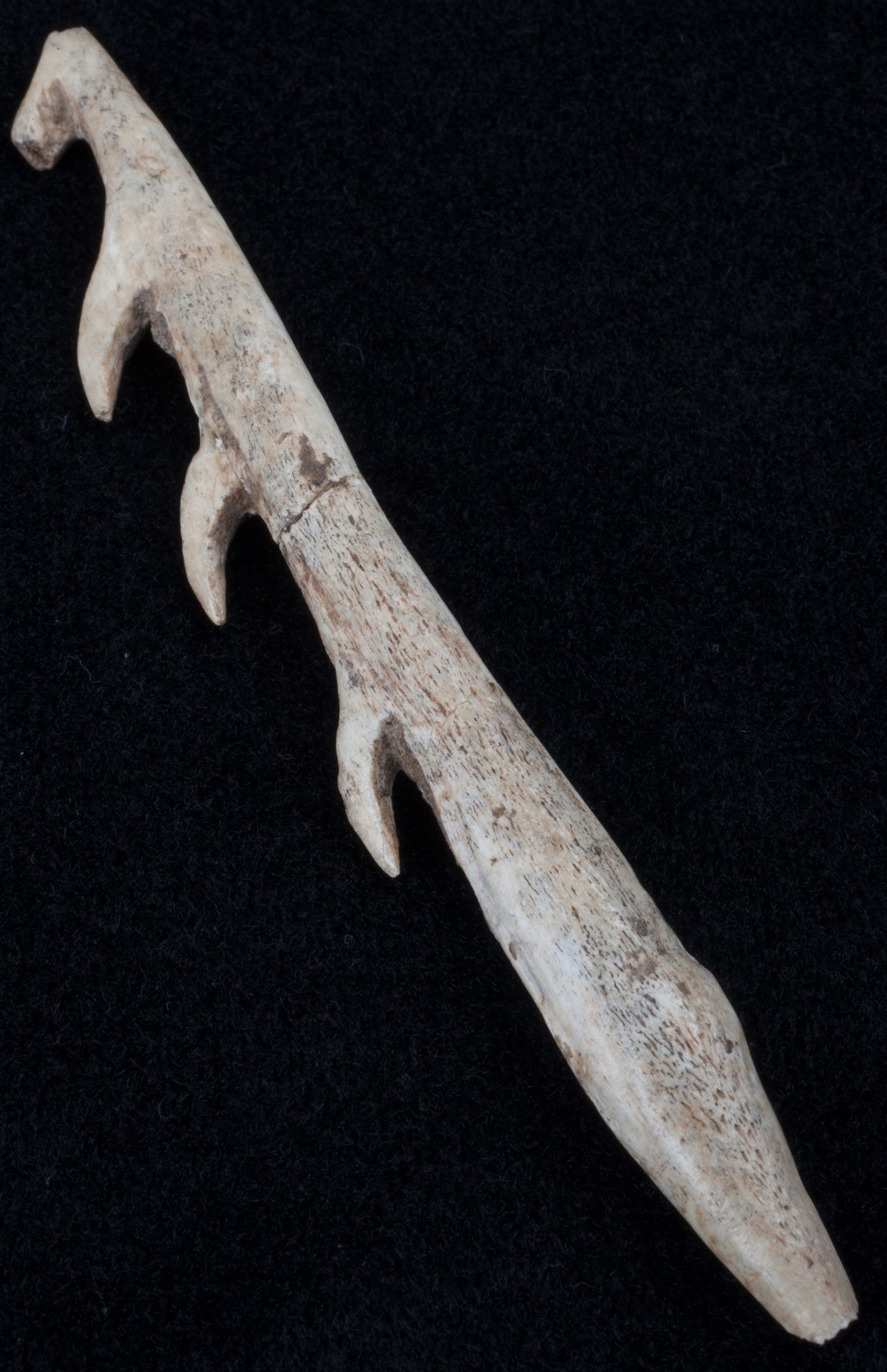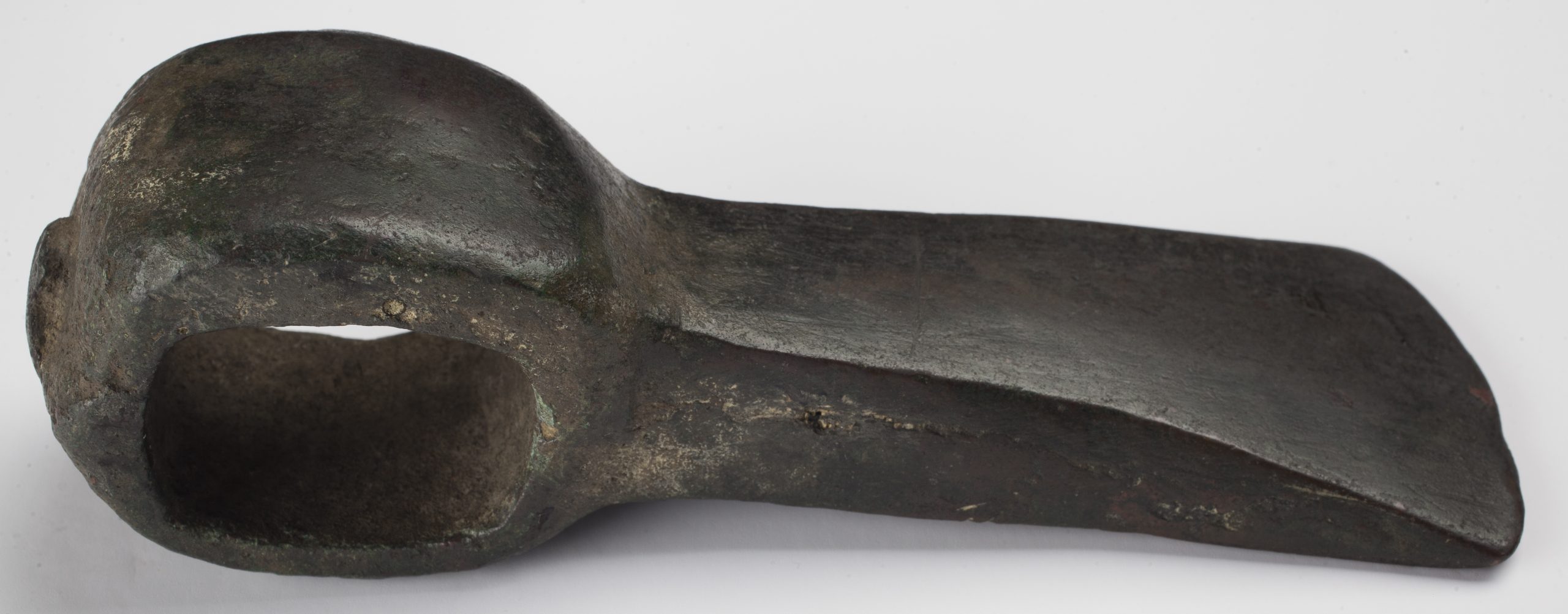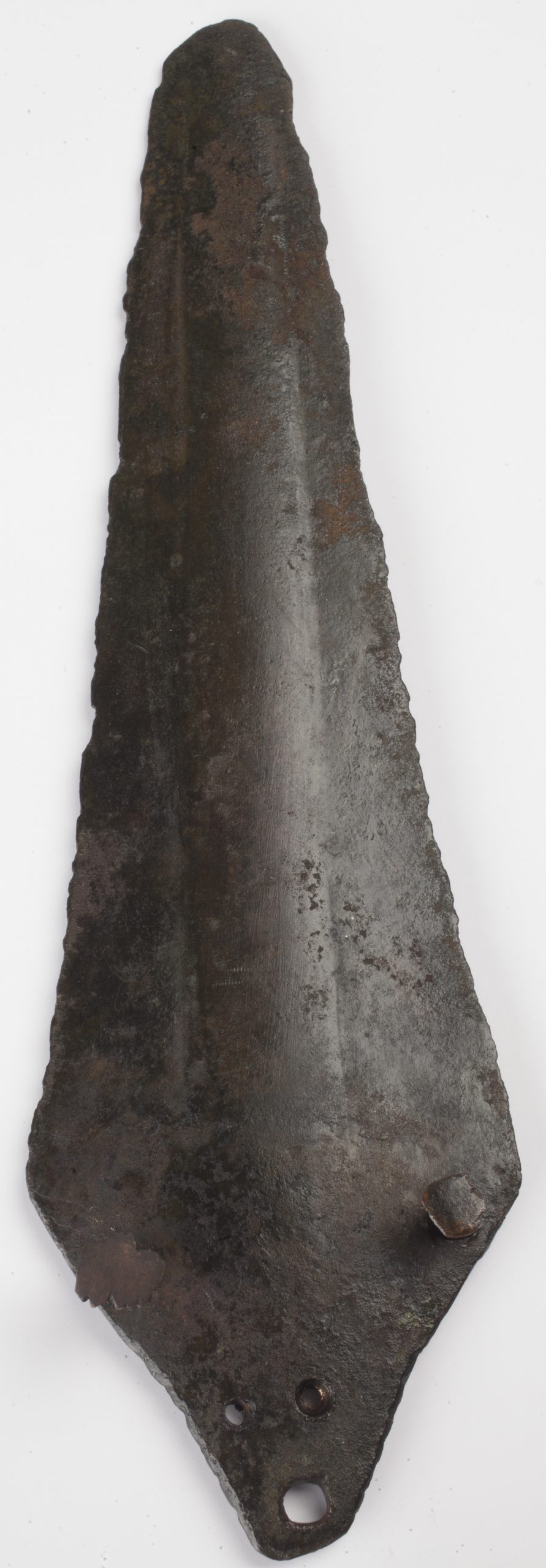- Object type
- jade axe
- Production date
- -6000 / -4700
- Fabric -
- Culture
- Prehistory
- Discovery location
- Ripoll
- Materials
- jade, igneous rock
- Township
- Ripoll (Europa, Espanya, Catalunya, Girona, Ripollès)
- Technique
- polishing
- Where is it?
- MASPG
- Dimensions
- 78 x 43 x 22 mm


